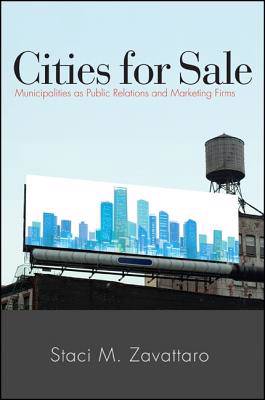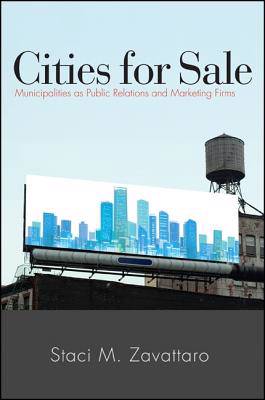
- Afhalen na 1 uur in een winkel met voorraad
- Gratis thuislevering in België vanaf € 30
- Ruim aanbod met 7 miljoen producten
- Afhalen na 1 uur in een winkel met voorraad
- Gratis thuislevering in België vanaf € 30
- Ruim aanbod met 7 miljoen producten
Zoeken
Cities for Sale
Municipalities as Public Relations and Marketing Firms
Staci M Zavattaro
Hardcover | Engels
€ 151,45
+ 302 punten
Uitvoering
Omschrijving
Today's cities are competing with each other on many levels--for our business, for our residency, for our tourism dollars, for our employment, and much more. Especially in light of market models of governance seeping into the public sector, it has become both necessary and prudent for city staff to undertake place promotion to attract many potential stakeholders. In Cities for Sale, Staci M. Zavattaro reveals that cities are increasingly acting like private-sector public relations and marketing firms in scope, value, and practice. To promote their cities, public administrators are embracing tactics such as branding, media relations, in-house publication, and the use of volunteers or outside organizations as PR surrogates. This shift in communication patterns from providing public information to city self-promotion has, Zavattaro argues, both positive and negative implications for democratic governance and citizen participation.
Specificaties
Betrokkenen
- Auteur(s):
- Uitgeverij:
Inhoud
- Aantal bladzijden:
- 152
- Taal:
- Engels
Eigenschappen
- Productcode (EAN):
- 9781438446813
- Verschijningsdatum:
- 1/05/2013
- Uitvoering:
- Hardcover
- Formaat:
- Genaaid
- Afmetingen:
- 163 mm x 236 mm
- Gewicht:
- 385 g

Alleen bij Standaard Boekhandel
+ 302 punten op je klantenkaart van Standaard Boekhandel
Beoordelingen
We publiceren alleen reviews die voldoen aan de voorwaarden voor reviews. Bekijk onze voorwaarden voor reviews.











